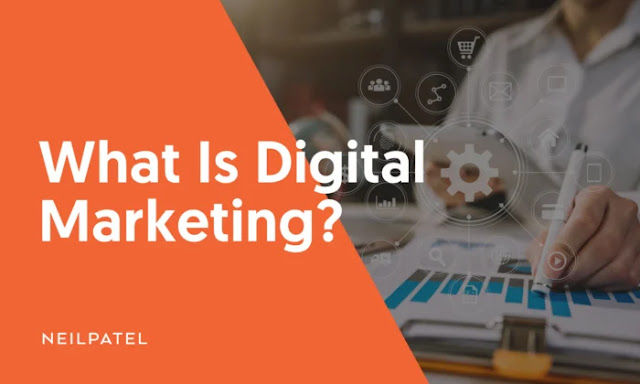Introduction
In the age of digital
dominance, where screens are our windows to the world, digital marketing
emerges as a powerful force that shapes the way businesses connect with their
audiences. Digital marketing is not just a buzzword; it's a strategic approach
that leverages the vast realm of the internet to promote products, services,
and ideas. In this blog, we delve into the heart of digital marketing,
exploring its key components, strategies, and the profound impact it has on the
modern business landscape.
Understanding
Digital Marketing
At its core, digital marketing
encompasses a wide range of online strategies and tactics aimed at reaching,
engaging, and converting target audiences. Unlike traditional marketing, which
relies heavily on physical channels like print and television, digital
marketing harnesses the power of digital platforms, from search engines to
social media, to achieve marketing goals.
Key
Components of Digital Marketing
1.Search
Engine Optimization (SEO): SEO is the art of enhancing a website's visibility on search
engines like Google. By optimizing content and website structure, businesses
aim to rank higher in search results, increasing their chances of being
discovered by potential customers.
2.Content
Marketing: Content lies at the heart of digital marketing. Valuable,
relevant, and engaging content, in the form of articles, videos, infographics,
and more, helps build trust, authority, and brand loyalty among audiences.
3.Social
Media Marketing: Social media platforms like Facebook, Instagram, Twitter, and
LinkedIn provide a space for businesses to connect directly with their target
audience. Social media marketing involves creating compelling content, engaging
with followers, and running targeted ads.
4.Pay-Per-Click
(PPC) Advertising: PPC advertising involves
placing ads on search engines and other platforms, paying only when users click
on the ad. This method allows for precise targeting and measurable results.
5.Email
Marketing: Email remains a powerful tool for communication and promotion.
Email marketing campaigns involve sending tailored messages to subscribers,
nurturing leads, and driving conversions.
6.Affiliate
Marketing: In affiliate marketing, businesses collaborate with influencers
or other websites to promote their products or services. Partners earn a
commission for every sale generated through their referral.
The
Impact of Digital Marketing
The rise of digital marketing
has transformed the way businesses operate and interact with their customers.
It has democratized marketing, allowing even small businesses to reach a global
audience without the need for massive budgets. Digital marketing offers
benefits such as:
·
Global
Reach:
With the internet's reach spanning the globe, businesses can
connect with audiences across continents, transcending geographical boundaries.
·
Targeted
Marketing: Digital marketing enables businesses to target specific demographics,
ensuring that their message reaches the right people at the right time.
·
Measurable
Results: Unlike traditional marketing, digital marketing provides
detailed analytics and insights, allowing businesses to track their campaigns'
performance and make data-driven decisions.
·
Cost-Effectiveness: Online
campaigns often require lower budgets compared to traditional advertising
methods, making it accessible to businesses of all sizes.
Conclusion
Digital marketing is a dynamic
and ever-evolving field that empowers businesses to establish a meaningful
online presence, engage with their audiences, and drive conversions. By
harnessing the power of search engines, social media, content, and more,
businesses can navigate the digital landscape with precision, creativity, and
impact. As technology continues to advance, digital marketing remains a vital
tool for success, shaping the way brands connect, engage, and thrive in the
digital age.



0 Comments